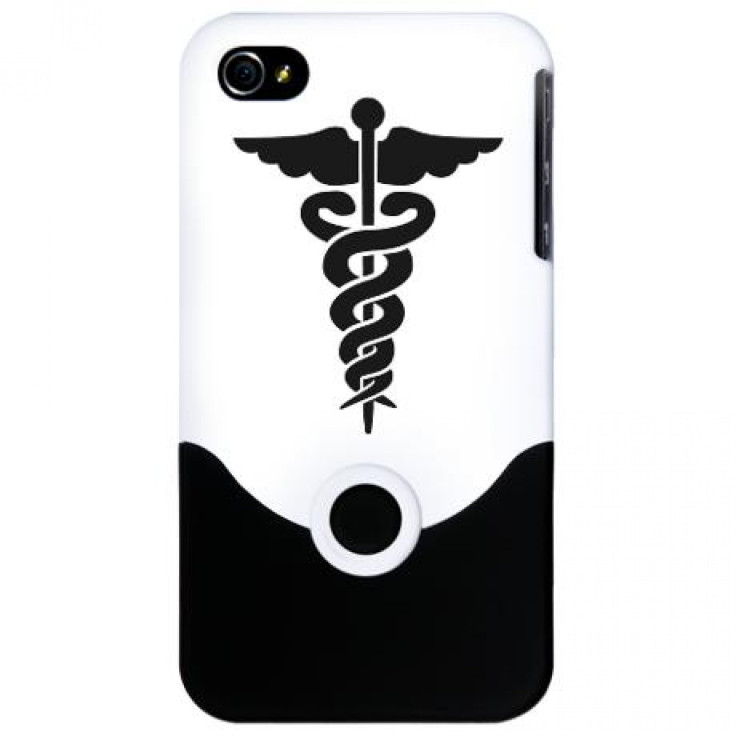Diagnostic Skin Cancer Apps Fail Exam: Patient Beware, the iDoctor Isn't Always In

There’s a booming market for diagnostic health apps, but health experts warn that you shouldn’t rush to replace your doctor with a smartphone.
A group of University of Pittsburgh dermatologists decided to look at how accurate various skin cancer-diagnosing apps are. They tested four different applications on 188 photos of moles that had already been evaluated by doctors, some showing cancerous melanomas and others with benign lesions.
Their results, published on Wednesday in the Journal of the American Medical Association Dermatology, are concerning -- three of the four apps incorrectly labeled nearly a third or more of the melanoma photos as nothing to worry about. Such worrisome inaccuracy may mean that users with skin cancer will check themselves and, getting a digital OK, skip the doctor’s office.
“Although such applications have the potential to improve patient awareness and physician-patient communication, applications that provide any type of medical advice might result in harm to the patient if that advice is incorrect or misleading,” the authors wrote.
Skin cancer experts echoed the author’s concerns about the mobile diagnostic trend.
"For people to use them for interest sake or raise awareness of the need to check their own skin regularly is good, but to use this as a sole diagnostic tool is not a good idea," South Canterbury Cancer Society spokesperson Kate Johnson told New Zealand’s Timaru Herald on Friday.
Self-monitoring devices could possibly give people a false sense of security, according to Johnson.
"We would hope people only use them out of interest rather than relying solely on them for a skin cancer diagnosis."
The one app that actually performed well in the study, with a success rate above 98 percent, sent the photos to dermatologists for $5 per mole. The cheaper and poorly performing apps used computer algorithms to automatically diagnose moles as cancerous or benign. The worst app of the bunch correctly identified a cancerous mole just 6.8 percent of the time.
Researchers did not name any of the apps they studied by name, but Business Insider reports that Bobby Buka, the co-founder of SpotCheck, thinks his app is probably the lone winner of the trial. SpotCheck sends smartphone-snapped photos of moles to dermatologists at $4.99 a mole, and Buka said the app was seeing an unusually high number of submissions during the study.
Last June, Congress gave the U.S. Food and Drug Administration the power to regulate some smartphone medical applications. It’s still not clear how the agency’s review process will work, and in the meantime, patients should probably take all medical advice from their phones with a healthy grain of salt.
With caution in mind, here are some diagnostic apps for you to peruse:
General symptoms: If you’re the kind of person whose first thought after a sudden stomach cramp is "how worried should I be about a burst appendix?," then the WebMD app is probably for you. Contains a symptom checker, drug database and first aid instructions, among other features. May induce slight hypochondria. Cost: free.
Diabetes: iBGStar, developed by drug maker Sanofi Aventis, is an iPhone app that synchs up with a special blood glucose monitor allows people with Type 1 or Type 2 diabetes to monitor their glucose levels and track their health over time. Cost: $37-$80.
Acne: It’s not quite an app, but Novimedicine, an acne consultation tool, definitely aligns with the spirit of the mobile health movement. The service was developed by Stanford and Mayo Clinic-trained dermatologist Josh Spanogle, with the help of his brother Seth Spanogle, a software developer. Through Novimedicine’s website, users answer questions about their acne and health, and snap a few photos of problem areas with their computer, phone or camera. Within two days, the user gets a specialized treatment plan back from a board-certified dermatologist. Cost: $59.
Like this story? Follow @rpalmerscience on Twitter!
© Copyright IBTimes 2024. All rights reserved.











